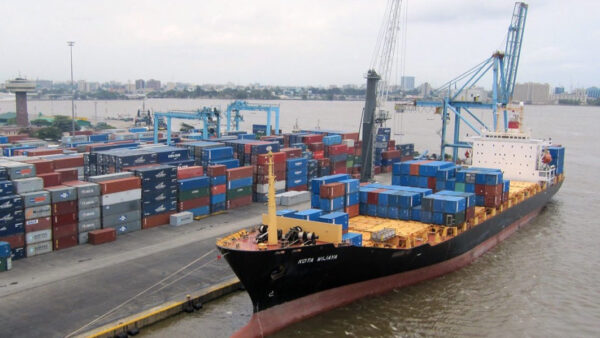Accidents: FRSC, NSC Plot Solutions To Nigeria’s 90% Expired Trucks

By Kenneth Jukpor
The high spate of truck accidents in Nigeria has been attributed to the utilization of expired trucks with over 90 percent of such vehicles having exceeded the 30-year expiration period, according to the Federal Roads Safety Corps (FRSC).
FRSC Corps Marshal, Dr. Boboye Opeyemi revealed this while engaging haulage operators and Nigerian Shippers’ Council (NSC) in a meeting organized by the Council today.
The FRSC boss also lamented that some truck accidents occur because most truck heads are pulling more than they were built to handle, while others carrying the actual size have already outlived their lifespan.
Another issue which leads to accidents pointed out by the Corps Marshal, was that several trucks in the nation operate without tail lights and tail board reflectors that should enable other road users quickly spot trucks at night.
Speaking on the Apapa traffic gridlock, the Corps Marsal pledged to work with NSC in a bid to proffer lasting solutions to the traffic menace, adding that he would also engage the Ministry of Works and the Vice President, Prof. Yemi Osibanjo on the issue.
“With effective collaboration between FRSC, Shippers’ Council and other stakeholders, we can get the desired results to eliminate the Apapa traffic gridlock. Let me start by thanking the Executive Secretary of NSC, Mr. Hassan Bello for this meeting and we found all the critical haulage stakeholders in attendance.”
“These stakeholders have keyed into the MoU signed between NSC and FRSC to address several critical areas of road haulage. With the full implementation of the MoU and other plans with NSC and other stakeholders, we should see a new road haulage system in the country in terms of minimum safety standards, training of truck drivers, linkages in terms of access to drivers license database for truck operators as well as the Apapa traffic situation. NSC will work out the immediate implementation because we are talking about actions that lead to the loss of lives and valuable properties,” Boboye said.
In his welcome speech, the Executive Secretary of NSC, Mr. Hassan Bello noted that the Council conceptualized the development of Truck Transit Parks (TTPs), now called Vehicle Transit Areas (VTAs) to provide convenient rest areas for truckers and other road users to ensure the safety of lives and cargoes.
According to the NSC boss, the efficient utilization of VTAs would ensure efficient and effective service delivery across the nation’s transport chain and reduce accidents resulting from drivers’ fatigue.
His words: “It is worthy to note that the collaborative partnership between the NSC and FRSC under Dr. Boboye’s watch has recorded reasonable landmarks especially in traffic management and safety of cargo in transit. NSC and FRSC signed an MOU whose terms include setting standards, review the already set standard for truck owners and drivers for effective implementation.”
The MoU also covers the linkage to FRSC database for access to information, public education and enlightenment, training, implementation of VTAs, Inland Dry Ports (IDP) and other collaborations.
On his part, the Chairman of Association of Maritime Truck Owners (AMATO), Chief Remi Ogungbemi pledged support of truck operators to the new initiatives by FRSC and NSC.
He, however, noted that most used trucks imported into Nigeria are outdated vehicles that have failed the roadworthiness test in foreign countries.
According to him, the tough fiscal environment for truck operators in Nigeria, coupled with the extortion and poor state of Nigerian roads are factors that lead to rickety and outdated trucks.







